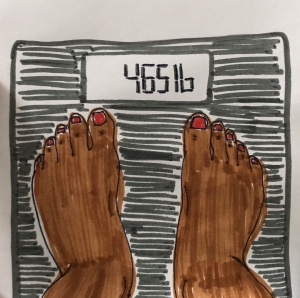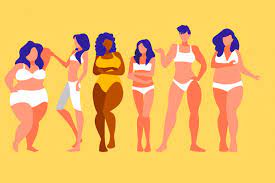Obesity is an epidemic, not just in the united states but in a lot of countries in the world. It begs the question; why don’t people stop eating so much? The problem is the solution to this problem is more complex than a simple life decision. We all know the feeling of being hungry and full, what if there was a disruption in this signaling that is leading to obesity? Leptin is a hormone in the body that regulates the reserves of energy stored in adipose tissue, it works directly by acting in the brain to regulate appetite. One would think an obese person would have increased leptin signaling, and partially you would be correct, but the high concentrations of leptin have led to resistance in the neurons and an eternal feeling of hunger. Over nutrition then leads to a plethora of other problems, mainly caused by inflammation in the central nervous system and peripheral tissues. The pandemic has brought light to our lifestyles and how body image is portrayed in media culture.

Before getting into the cultural anthropology of obesity it is important to understand the physiology. Rapid overconsumption of a fat-rich diet results in a two-phase inflammatory process in the hypothalamus. The first phase is a transient and the second comes from sustained exposure to a high fat diet, leading to prolonged inflammatory cascades and the activation of cellular stress mechanisms. Activation of transcription factors and the release of cytokines stimulate inflammation in the hypothalamus. The continuous release of leptin leads to resistance and adds fuels the problem. Without the necessary signaling of leptin a person is continuously hungry and continues to eat.

Body image has been a hot topic in media culture lately. Especially for women, but increasingly in men, there has been a criticism of unrealistic body expectations imposed by movies, models, magazines, etc.… There has been a calling to appreciate various body styles and sizes. This has brought light to multiple mental issues that revolve around people’s self-perception of their body. However, others have recognized the danger in this body appreciation as it celebrates an unhealthy lifestyle. Navigating this tightrope of mental and physical health is important for individuals and society. I believe it’s always important to be happy but knowing health is something we can all work on is equally important. Personally, I know being physically healthy positively affects mental health and I think changes in how we eat, and exercise will positively affect the mental health crisis we have.
Body image has been a hot topic in media culture lately, it coincides with a continuous growth in the obesity pandemic. Understanding the physiology of obesity is important when talking about the social issues around body image. Obesity is not an active decision and celebrating the body style supported by a consistent high fat diet is a slippery slope. The body changes in both the CNS and peripheral tissues from obesity are very detrimental to our health. The thin line between mental and physical health is where we should congregate.
